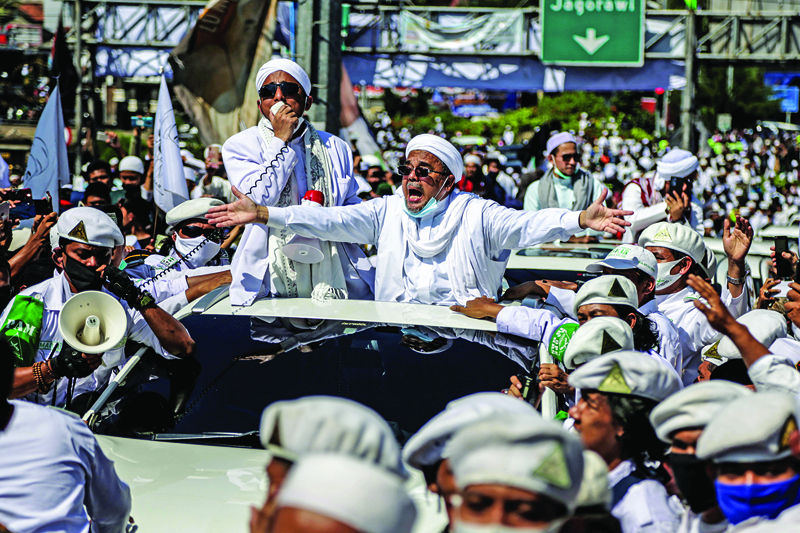
JAKARTA: Indonesia has banned an influential hardline Islamic group as police held its leader in custody over allegations he violated virus protocols by holding mass gatherings, the country's chief security minister said yesterday. The order bans the Islamic Defender's Front (FPI) from holding activities or using its name in public, effectively yanking its ability to legally operate.
The politically powerful group was long-notorious in the world's most populous Muslim majority nation for targeting night clubs and other establishments it deemed "immoral". It has also attacked minority Muslim sects it considers "deviant". "The government prohibits and will stop any FPI activities because they do not have legal standing as a mass organization," chief security minister Mahfud MD told reporters in Jakarta yesterday. The group's license to operate had expired last year but it continued activities illegally, he added.
The move sparked an angry reaction from the Islamist group, which vowed to carry on despite the ban. "They can ban FPI but they cannot stop our struggle to defend the country and religion," said group spokesman Novel Bamukmin. "If we want, we can declare a new Islamic organization this afternoon. If it's banned again, we will do it again… We're here to stay," he added. Police arrested the FPI's firebrand leader Rizieq Shihab two weeks ago over allegations he breached coronavirus restrictions after holding a series of sermons with tens of thousands of followers.
'Moral revolution'
The arrest came just days after Jakarta police shot dead six FPI followers in a highway shootout. If found guilty, Shihab could face up to six years behind bars. Shihab was welcomed by tens of thousands of followers on his return last month from Saudi Arabia where he fled shortly after police named him a suspect in a pornography case in 2017. He remained in exile for three years. Since his return, he's called for a "moral revolution", stirring concerns about the group's bid to boost its political power. Basuki, who is Christian, was sentenced to two years in prison for blasphemy. - AFP










